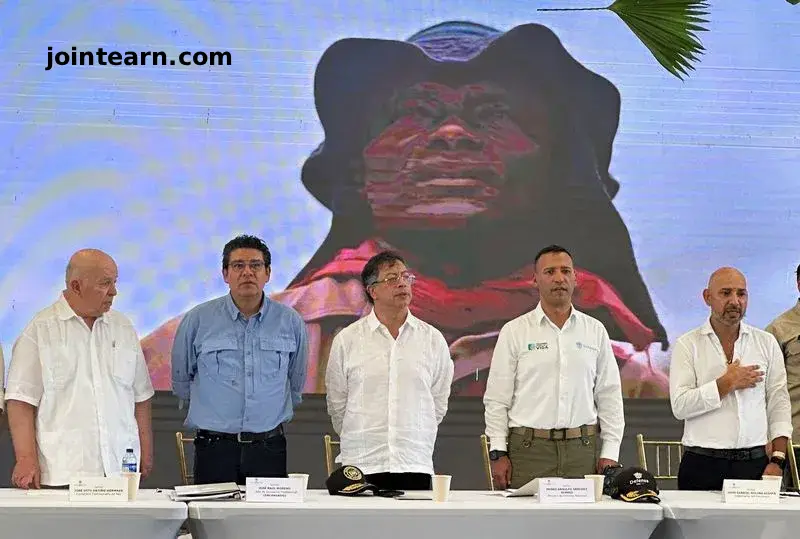
In a notable step toward peace, the National Coordinator of the Bolivarian Army (CNEB), a dissident faction of Colombia’s former FARC guerrilla movement, has handed over 14 tons of munitions to the Colombian government. The gesture, aimed at demonstrating goodwill in ongoing peace talks, represents one of the most significant developments in President Gustavo Petro’s efforts to end decades of armed conflict in the country.
Major Peace Milestone in Puerto Asis
The handover ceremony took place on October 15, 2025, in the southern town of Puerto Asis, Putumayo Department, with President Gustavo Petro attending. The event marked the destruction of explosives, grenades, mortars, and other war materials in a controlled detonation conducted by the National Army. Officials confirmed that two additional deliveries of munitions are expected shortly in the nearby department of Nariño.
President Petro hailed the occasion as a “concrete step toward peace” after decades of violence that have claimed more than 450,000 lives and left millions displaced. The CNEB, which comprises approximately 2,000 combatants and collaborators, emerged from the Second Marquetalia—a FARC dissident faction led by Iván Márquez that rejected the 2016 peace agreement citing noncompliance by the state.
CNEB Leadership Voices Optimism
Walter Mendoza, leader of the CNEB, described the handover as “a sign of goodwill for peace” and expressed optimism about reaching additional agreements with the government. However, Mendoza also criticized the slow pace of state investment in Colombia’s remote regions, emphasizing that full disarmament and demobilization would only be achieved after tangible improvements in infrastructure, including roads, schools, and hospitals.
“The delivery of war materials is a first step,” Mendoza told Reuters. “True peace depends on the state following through with investments in our communities.”
Colombia’s Broader Peace Efforts
Analysts view the CNEB’s handover as potentially one of President Petro’s most concrete peace achievements, particularly in light of stalled negotiations with other armed groups such as the ELN and criminal organizations like the Gulf Clan.
Earlier attempts at disarmament included the ELN splinter group, Comuneros del Sur, which handed over weapons in 2024. However, that process has since been delayed, highlighting the challenges of negotiating peace with multiple armed factions while combatants remain heavily involved in drug trafficking and illegal mining.
President Petro’s ambitious peace plan aims to demobilize more than 20,000 armed fighters over his term, a campaign heavily reliant on dialogue and state investment in Colombia’s most neglected regions. With less than a year remaining in his term, the CNEB handover may become a pivotal milestone demonstrating the government’s commitment to long-term stability and security.
Challenges Ahead
Despite the optimism, experts caution that peace in Colombia remains fragile. Sustaining the momentum requires not only ongoing dialogue but also consistent implementation of infrastructure projects and development programs in conflict-affected areas.
“The peace process is not just about disarmament; it is about addressing the root causes of conflict,” analysts noted. “Unless the government invests in these regions, future dissident groups could emerge, threatening the fragile stability achieved so far.”
The controlled destruction of 14 tons of munitions represents both a symbolic and practical step forward, signaling that even long-standing rebel factions are willing to engage in peaceful resolutions—provided the state fulfills its side of the commitments.


Leave a Reply